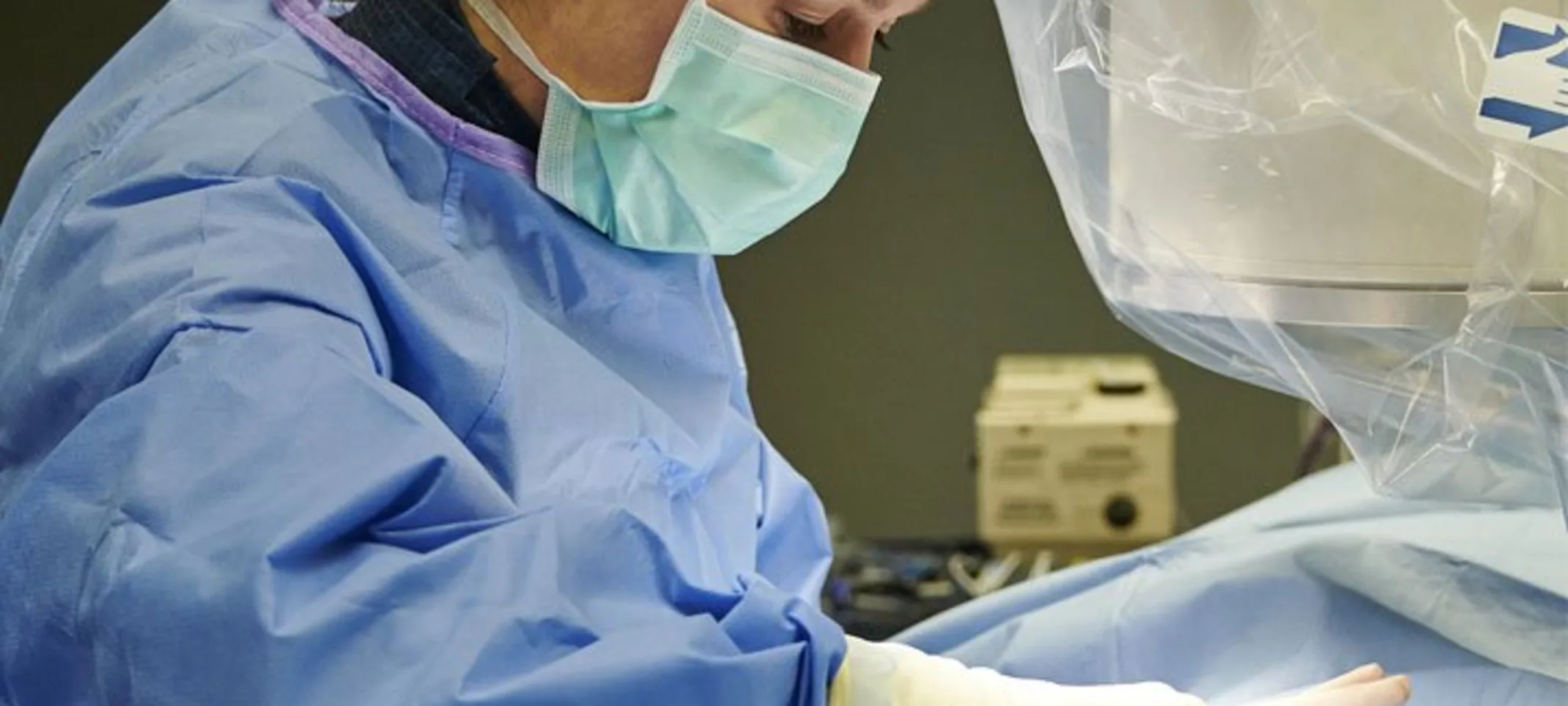Metropolitan Veterinary Hospital
Cardiology
This service is offered at our Akron and Cleveland East locations.

Our cardiology doctors evaluate, diagnose, and treat congenital and acquired heart diseases. This comprehensive practice offers specialized diagnostics and invasive procedures relevant to management of cardiovascular diseases in pets.
As a specialized practice within a multi-specialty hospital, we provide integrated specialized care for pets with complex, multi-systemic diseases and assist in the management of cardiac complications of other disease processes. When necessary, we make recommendations for and facilitate transfer to our surgeons when surgical intervention or therapy is required.
We work closely with your primary care veterinarian to keep them updated on our findings and recommendations and partner with them to provide your pet with ongoing, comprehensive care.
Our Services
Echocardiogram
The echocardiogram is an ultrasound of the heart. Our highly sophisticated echocardiograph is the same equipment used in human hospitals such as Akron General and the Cleveland Clinic. With this machine, we obtain two dimensional views of the heart, including all four chambers of the heart, valves and major blood vessels. Using Doppler, we can also evaluate the speed, direction, and quality of blood flow. The picture from an echocardiogram is much more detailed information about the heart than a radiograph and involves no radiation exposure. The echocardiogram is non-invasive and does not require anesthesia, although a light sedative may be used, on rare occasions, for some of our uncooperative patients or in puppies and kittens.
Chest Radiographs
Radiographs are one of the most common diagnostics performed. Radiographs, or x-rays, of the chest are usually done to evaluate heart size and the lung fields. Congestive heart failure is diagnosed when the radiographs show evidence of fluid in the lungs in conjunction with cardiac changes. X-rays are a non-invasive test. The patient is placed on their side for one view and then on their back for the second view. The results are ready within seconds and available for interpretation by our team of cardiologists and our radiologists (IDEXX Teleradiology). We do not interpret or consult on radiographs taken on non-established patients.
Blood Pressure
Monitoring your pet’s blood pressure is often important in caring for him/her in the face of heart disease. This is another non-invasive procedure performed a little differently than in human medicine. We measure your pet’s front leg (tail and rear legs work as well) and based on that measurement choose the proper cuff size for the limb. Instead of using a stethoscope to listen for blood flow return after inflating and then slowly deflating the cuff, we use a Doppler device which amplifies the sound of the blood flow. With the Doppler, we are able to measure the systolic (top number) blood pressure. Normal blood pressure in a dog is 100-160 mmHg, and in a cat is 110-160 mmHg.
Electrocardiogram (ECG/EKG)
An ECG is a recording of the electrical activity in your pet’s heart. ECG is typically used to diagnose arrhythmia, or abnormal heart rhythm, in your pet. Changes in the ECG can also suggest enlargement of specific heart chambers. This is a non-invasive procedure where we have the capability to evaluate your pet’s heart rhythm by a rhythm strip (leads I, II, and III), 6-lead, and 12-lead ECGs. We look at multiple leads to evaluate the electrical activity from different locations of your pet’s body. Our cardiologists do offer EGC consultations for non-cardiology patients for a fee.
Holter Monitor
A Holter monitor is a special ECG recording device that pets can wear at home for heart rhythm monitoring purposes. Holter Monitors are worn for 24 hours, but in some cases can be worn for up to a week. A Holter Monitor is typically used to identify transient arrhythmias that may be missed on an in-clinic ECG, to evaluate frequency and severity of an arrhythmia, and to monitor response to anti-arrhythmic therapy.
Loop Recorder
A Loop Recorder is also a way to look for transient arrhythmia in a pet that is having collapse or other unexplained symptoms. This device is implanted superficially under the skin over the heart during a very brief anesthesia. This monitor has a battery life of up to three years and has a several-minute period of heart rhythm in its memory that is consistently updated. When certain criteria are met, or when the Owner witnesses an event and triggers the device, that period of heart rhythm (about 7 minutes) around the trigger is stored for later retrieval. Once an animal has an event, we can download the information from the device non-invasively at a quick appointment. These monitors are used to investigate intermittent episodes of collapse when no other reason for the collapse can be identified with a thorough work-up.
Cardiac catheterization and angiography
Because pets do not commonly suffer from coronary disease (unlike their human owners) and since most congenital and acquired diseases can be diagnosed non-invasively by echocardiography, cardiac catheterization, and angiography are most often performed in association with invasive procedures or in cases which a definitive diagnosis cannot be made by echocardiography. Cardiac catheterizations are performed in anesthetized pets and most commonly involve passing specialized catheters via either the jugular vein or carotid artery in the neck or femoral artery or vein in the leg into the great vessels and heart. Pressures can be measured and special dye studies (angiography) can be used to outline cardiac structures.
Invasive Procedures
The most common cardiac invasive procedures performed at Metropolitan Veterinary Hospital are pacemaker implantation, balloon valvuloplasty, and ductal occlusion of patient ductus arteriosus. Pacemakers are implanted for abnormal heart rhythms that cause the heart to beat too slowly or result in pauses in the heartbeat. Balloon valvuloplasty is typically used for palliation of a birth defect of the pulmonic valve that prevents this valve from opening normally. A specialized balloon catheter is passed across the abnormal valve and inflated to tear open the valve and allow easier passage of blood into the lungs. The Amplatz Canine Ductal Occluder (ACDO) is a device that can be delivered via a catheter to occlude (correct) a patent ductus artriosus – a common birth defect in dogs. This defect can also be corrected by thoracic surgery in animals that are too small for the ACDO device.
Appointments
For your initial appointment please allow yourself at least an hour and a half to two hours for the consultation and diagnostics. Please arrive 10 minutes before your scheduled appointment to complete check-in. Use the linked form above if you would like to complete check-in forms prior to your appointment.
Once the paperwork is complete, a doctor or a technician will obtain a history on your pet. A preliminary plan, most likely including an echocardiogram, will be discussed and our team will be available to answer any questions you might have. A Cardiologist will examine your pet and review information from your referring veterinarian and formulate a definitive plan for your pet. This recommended plan will be discussed, if different from the preliminary plan, and any additional questions you may have will be answered. Upon completion of the recommended diagnostics, you will be placed in an exam room, and the Cardiologist will go over her findings and additional recommendations. This can be done over the phone if you would prefer. During the consultation, the Cardiologist will provide you with a detailed estimate for any additional diagnostics she is recommending. We will have written go-home instructions (including test results, diagnosis, medications, and further follow-up needed) for you. The final report may not be available at the end of your appointment if all the test results are not available; though, a final copy will be sent to the email on file. A copy of these go-home instructions is always faxed to your referring/regular veterinarian(s) that were provided on the check-in forms.
Frequently Asked Questions:
List of FAQ’s on Cardiology, medications, and when to seek Emergency Care
Cardiology Department Hours
Our Cardiology Department’s hours are Monday through Friday from 8:00am to 4:30pm. The Cardiologists do come in over the weekends to evaluate in-hospital patients and are available for emergency phone consultation with our Emergency Service around the clock.
Hospitalized Patients
When your pet is hospitalized through cardiology you will receive a call by noon with a general update (during regular business hours Monday through Friday). If you have not heard from us by noon please don’t hesitate to call. One of the Cardiologists will call in the afternoon with a second update once we have gathered information and have performed necessary diagnostics. The afternoon update calls are usually after 4:00pm (Monday through Friday). If your pet is hospitalized outside of regular business days you will receive a call from a doctor before noon. A receptionist will call you with a financial update once daily while your pet is hospitalized Monday through Friday. Please ask the Cardiologist for a financial update if your pet is hospitalized over the weekend. Visitation hours for our hospitalized patients are between the hours of 10:00am and 7:00pm. Room visitation for approximately 30 minutes once a day is allowed. We ask that ICU visitation be limited to 15 minutes. If you visit after hours, please do not expect to speak directly to the emergency veterinarians. If you have any concerns, please let the technical staff know and this will be relayed to the attending doctor or staff doctor.
Current Clinical Trials
Our team is committed to bringing the highest level of medicine to our community, and we are excited to share the clinical trials available to our patients. Use the button below to access additional information:
